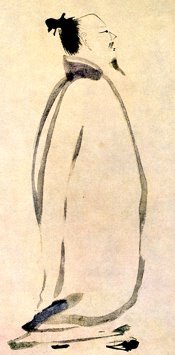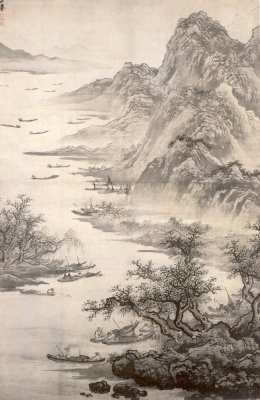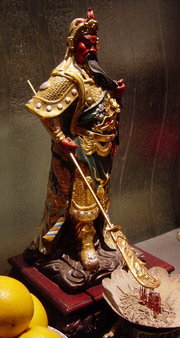
The Tang Dynasty was considered a Golden Age of art and culture in China. Poetry was particulary esteemed. No occasion, no homecoming or leave taking; no celebration would be complete without one.Some of the best poems from the Tang Dynasty period are collected into a book entitled The 300 Tang Dynasty Poems. If you click on the title of this post, you'll be directed to an online version of it. This one is written about someone failing the imperial examination.
Five-character-quatrain
Wang Wei
TO QIWU QIAN BOUND HOME AFTER FAILING IN AN EXAMINATION
In a happy reign there should be no hermits;
The wise and able should consult together....
So you, a man of the eastern mountains,
Gave up your life of picking herbs
And came all the way to the Gate of Gold --
But you found your devotion unavailing.
...To spend the Day of No Fire on one of the southern rivers,
You have mended your spring clothes here in these northern cities.
I pour you the farewell wine as you set out from the capital --
Soon I shall be left behind here by my bosomfriend.
In your sail-boat of sweet cinnamon-wood
You will float again toward your own thatch door,
Led along by distant trees
To a sunset shining on a far-away town.
...What though your purpose happened to fail,
Doubt not that some of us can hear high music.











